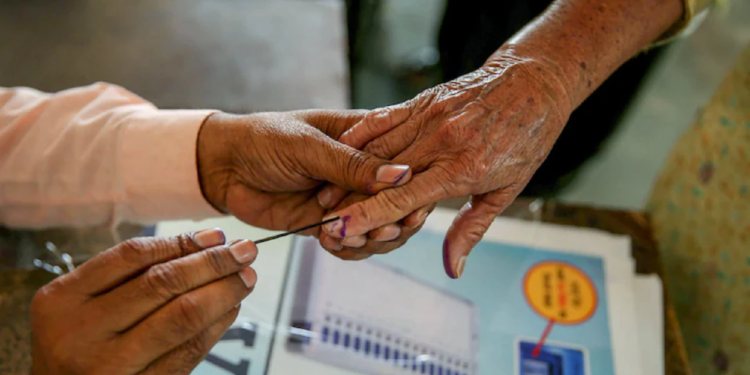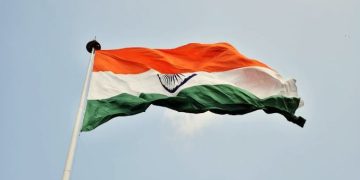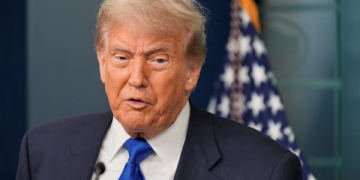The question of ideology in Indian politics has been debated and dismissed for a long time. Writing for the New York Times, the American political pundit Anand Giridharadas dismisses Indian elections as one being without “ideology, larger-than-life leaders, causes or principles.” The flaw in the first part of Giridharadas’ argument is instantly recognisable to anyone with even a rudimentary awareness of Indian politics. The popularity of leaders like J Jayalalithaa, MG Ramachandran, NT Rama Rao and arguably even Jawaharlal Nehru has been at least in part due to their perception of being larger-than-life personalities. The question of ideology, on the other hand, is much more complex.
India has witnessed unlikely coalitions among the socialists and the Hindu nationalists during the emergency to rout Indira Gandhi in the immediate aftermath of Emergency. Similarly, the Communist Party of India (CPI) and the Bharatiya Janata Party (BJP) both provided outside support to the National Front government under VP Singh. In recent years, the unlikely alliance between the Congress and the Hindu nationalist Shiv Sena in Maharashtra further bolsters the argument for the irrelevancy of ideology in Indian politics.
These factors, however, cannot be taken as clinching proof of the non-ideological nature of Indian politics. There have always been individuals in Indian political parties who haven’t necessarily adhered to the broader political ideology of their own party. The socialist leader George Fernandes is a notable example. This is not unique to Indian politics. Within the socially conservative Republican Party in the United States, there have been factions like the Log Cabin Republicans who have stood up for LGBT rights. This does not change the fact that the Republican Party has historically largely adhered to socially conservative policies.
The political scientists Rahul Verma and Pradeep Chibber identify two primary ideological divisions that have remained stable i.e. the politics of recognition and the politics of statism. Politics of recognition refers to whether everyone should be treated equally in the eyes of the state or whether some communities deserve preferential status a la reservations due to their backward social or economic status. Politics of statism, on the other hand, concerns whether the state should intervene in redistributing private property and regulating economic activity.
On both these spectrums, ideological adherence has remained stable in the Indian political arena historically. This can be glimpsed through multiple surveys conducted over the years. According to a 1971 survey, political activists belonging to the Congress, Left parties, socialists and regional parties were more likely to support statism (greater control of industries and bank nationalisation) than the political activists of Jana Sangh and the Swatantra Party. The findings remained fairly constant in a 1993 survey. While BJP political activists were less likely to advocate for state control in matters of religion and caste, Congress activists appeared to be situated firmly in the centre. Moreover, 59% of BJP activists were more likely to pray, go to temples and attend religious ceremonies while only 20% were similarly inclined in other political parties.
These findings seem to be in conflict with the popular perception that political leaders switch parties with relative ease. Using state assembly elections database between 1987 and 2007, Francesca Jensenius and Pavithra Suryanarayan have found that there is considerable instability in candidates running for re-election. Nevertheless, while political candidates do run for re-election from other parties, they rarely cross ideological lines. Among the 2,643 BJP MLAs in the dataset, 72% ran for BJP while very few ran from Congress and other regional parties. Of the 1531 MLAs from the Communist Party, very few ran from regional parties while no one ran from BJP and only 4 ran from Congress. Indian voters show remarkable ideological consistency as well. Ideological voters are more likely to make their decision than non-ideological ones motivated by campaign promises. The majority of Indian voters make their decision before the campaign even begins. The proportion of late voters has been steadily and consistently declining in each successive election.
In the immediate aftermath of Independence, the Congress party under Nehru managed to accommodate elements on both the Left and Right side of the statist economic spectrum. The state managed to equate developmental, social progress and equal treatment with greater intervention and regulation. While the state abolished the Zamindari system, it did not redistribute property. Its control of production of goods provided monopolies to a select few industrialists.
Its statist politics were further continued by Indira Gandhi who sought to, at least rhetorically, eradicate poverty. The inability of the Congress to accommodate recognition as the calls of the backward classes grew proved to be a fatal error. While the Hindu nationalists drifted away to the BJP due to its increasing statism, socialist leaders like Karpoori Thakur mobilised the masses for recognition of backward classes. The social coalition of the Congress suffered as the Babri Masjid movement led its Right wing voter base towards the BJP while “the silent revolution” among OBCs ensured its backward class voters drifted to vocal regional parties.
In the aftermath of multiple corruption scandals and inefficiency, the middle class opposing the politics of statism took to streets in the 2011 anti-corruption movement. In contrast, the BJP projected Narendra Modi as a pro-business advocate and efficient administrator. The BJP’s electoral success, while partly a result of polarisation, is largely a consequence of its success in uniting anti-statist middle class voters and its Hindu nationalist core base opposing the politics of recognition. Chibber and Verma term this as the “fourth party system.”
The Indian electorate has rarely been ideologically devoid. On the contrary, the majority of India’s crucial political events can be traced to stable existing ideological divisions. In order to pose a real challenge to the BJP, political parties need to take a clear and explicit position on the politics of statism as well as the politics of recognition.
The author is a writer and student at the Jindal School of International Affairs.






































